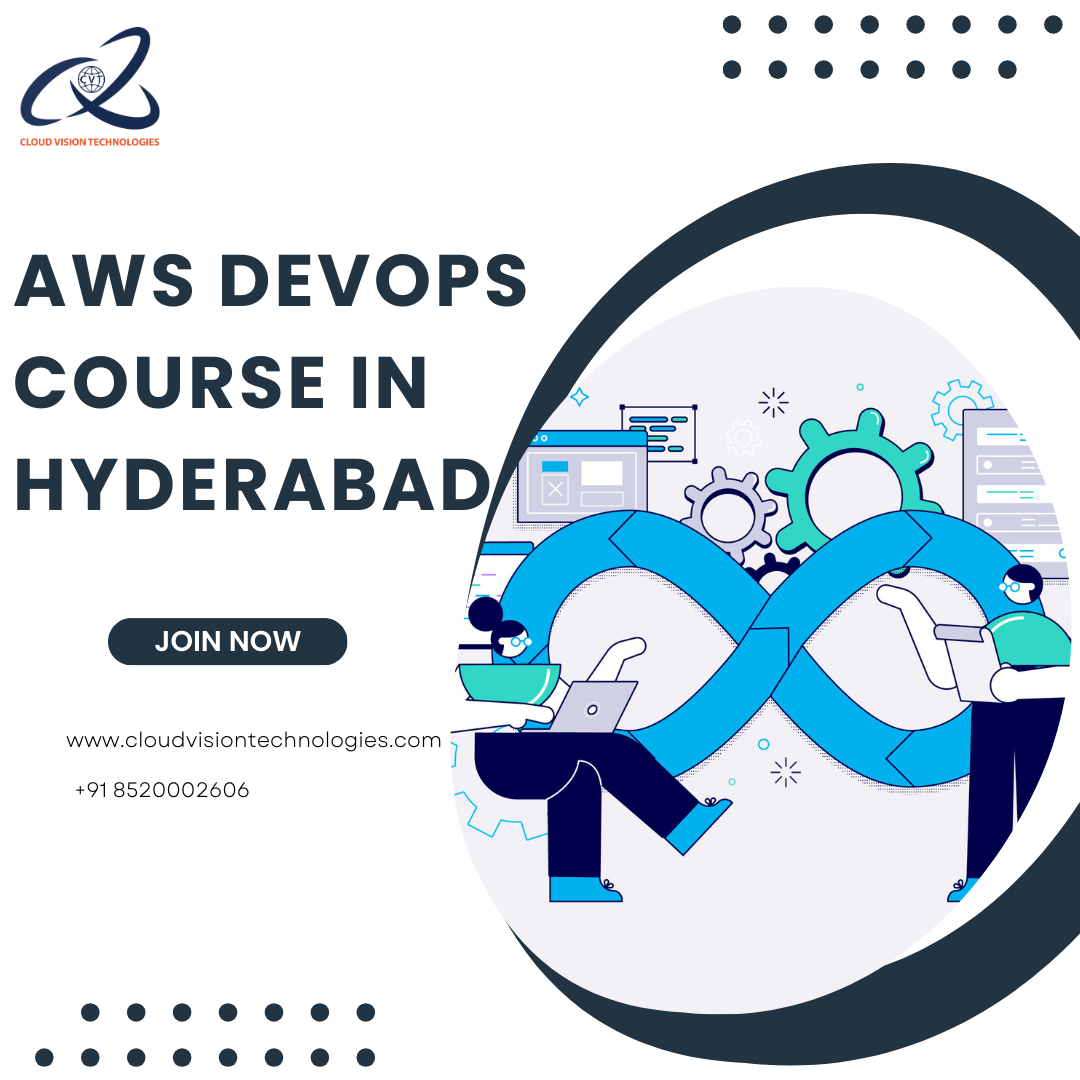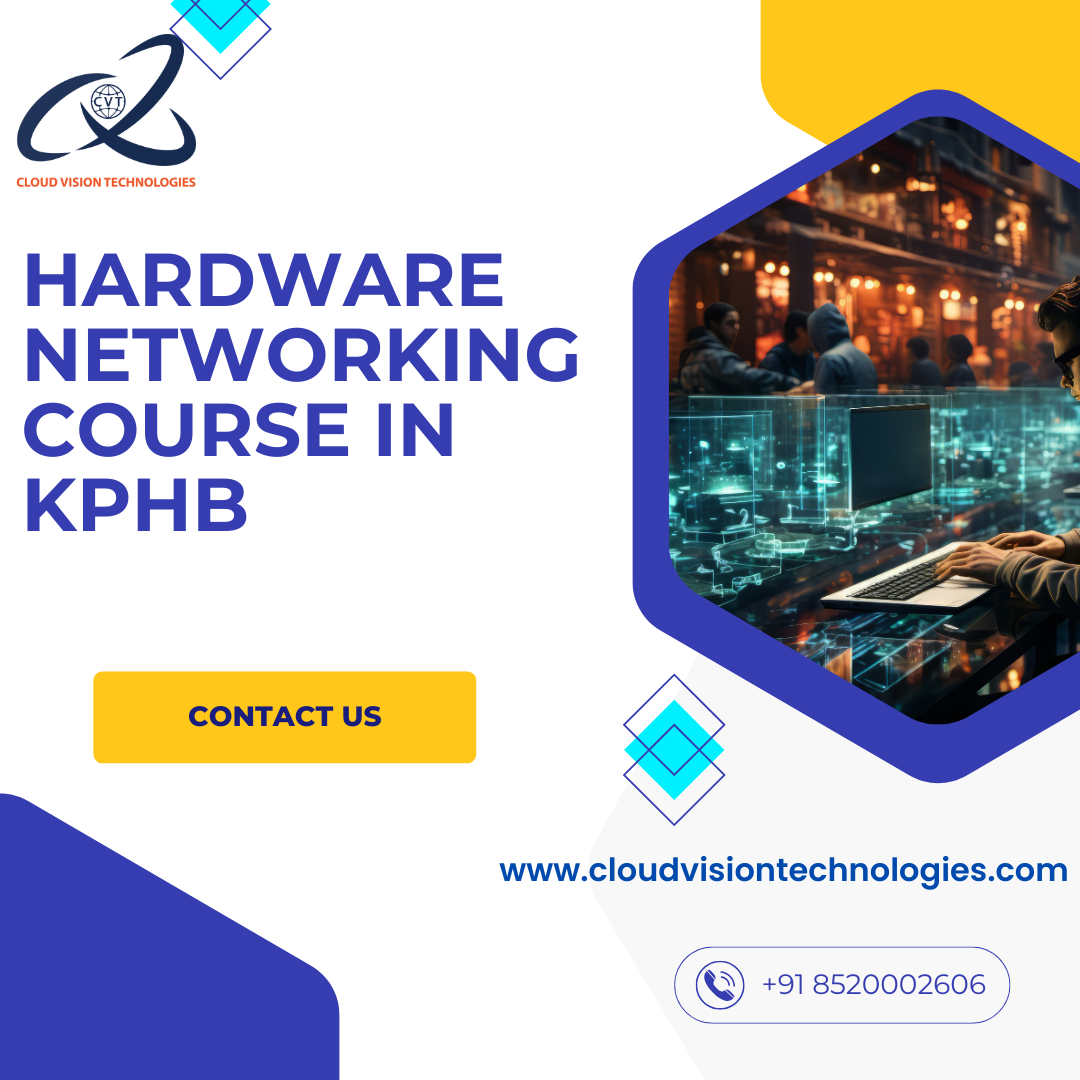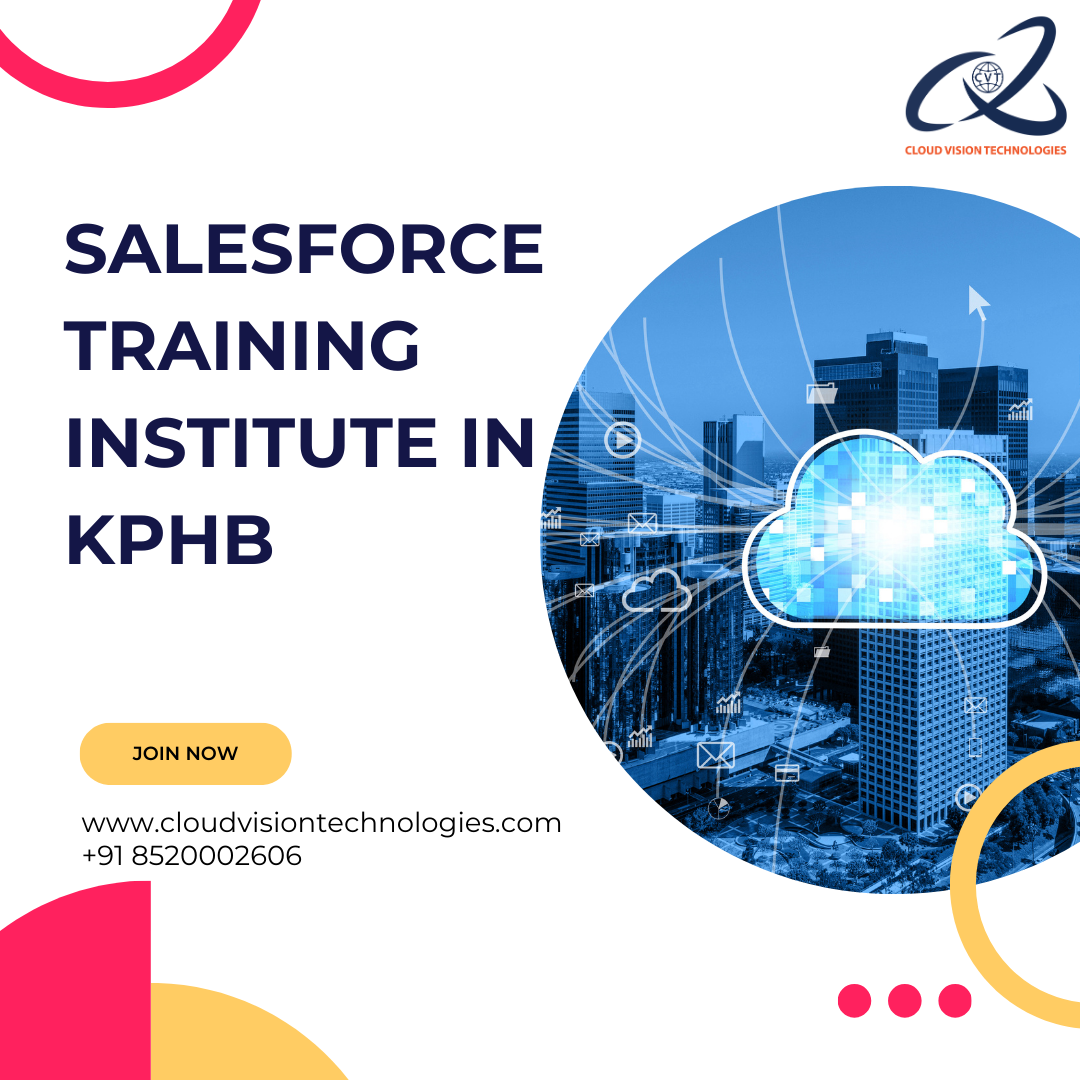
Full Stack Java Course in KPHB
Introduction
In the fast-paced and dynamic world of software development, the demand for Full Stack Java Developers has seen a significant rise. Full Stack Developers, proficient in both front-end and back-end technologies, are highly valued for their ability to design, build, and maintain complex applications. Java, one of the most robust, secure, and versatile programming languages, is a key component in the Full Stack Developer’s toolkit. It powers everything from enterprise-level applications to Android apps, making it a critical skill for developers.
Cloud Vision Technologies, located in the bustling area of KPHB (Kukatpally Housing Board) in Hyderabad, has established itself as a premier institute offering specialized training in Full Stack Java development. The course is meticulously designed to provide students with a comprehensive understanding of Java and its applications across the entire technology stack. Whether you are an aspiring developer or a seasoned professional looking to upskill, Cloud Vision Technologies offers a learning environment that fosters growth and success.
This article delves into the various aspects of the Full Stack Java course at Cloud Vision Technologies, exploring the curriculum, teaching methodology, and the unique advantages that make it one of the best training institutes in KPHB.

Why Full Stack Java?
Before diving into the specifics of the course, it’s essential to understand why Full Stack Java development is such a valuable skill in today’s job market.
Versatility and Demand:
Full Stack Java Developers are versatile professionals who can handle both the client-side (front-end) and server-side (back-end) aspects of an application. This dual skill set is highly sought after by employers, as it allows for more streamlined and efficient development processes. Java’s cross-platform capabilities further enhance its appeal, enabling developers to create applications that run seamlessly across different operating systems.
Java’s Robustness:
Java has stood the test of time as one of the most reliable and secure programming languages. Its object-oriented structure, extensive libraries, and strong community support make it a preferred choice for developing scalable and high-performance applications. Moreover, Java’s backward compatibility ensures that applications remain functional and secure even as the language evolves.
End-to-End Development:
A Full Stack Java Developer can oversee the entire development lifecycle, from designing user interfaces to managing databases and ensuring server-side functionality. This end-to-end approach not only enhances the quality of the application but also reduces the need for multiple specialists, making Full Stack Developers a cost-effective solution for many companies.
Career Opportunities:
With the increasing demand for web and mobile applications, companies are constantly on the lookout for skilled Full Stack Java Developers. This demand translates into numerous career opportunities, attractive salaries, and the potential for rapid career growth. Whether you’re interested in working for a tech giant, a startup, or even freelancing, mastering Full Stack Java opens up a world of possibilities.
Overview of Cloud Vision Technologies
Cloud Vision Technologies has built a reputation as one of the leading training institutes in Hyderabad, particularly in the KPHB area. The institute is known for its commitment to quality education, state-of-the-art infrastructure, and a student-centric approach. Cloud Vision Technologies offers a wide range of courses tailored to meet the needs of today’s tech industry, with a special focus on emerging technologies and in-demand skills.
The Full Stack Java course is one of Cloud Vision Technologies’ flagship programs, designed to provide students with a deep understanding of both front-end and back-end development using Java. The course is structured to cater to both beginners and experienced developers, ensuring that each student can progress at their own pace and achieve their learning goals.
Comprehensive Curriculum
It is divided into multiple modules, each focusing on a specific area of the technology stack. This modular approach ensures that students build a strong foundation before moving on to more advanced topics.
Introduction to Java Programming:
The course begins with an introduction to Java programming, covering the basics such as syntax, data types, control structures, and object-oriented programming concepts. This module is crucial for students who are new to programming, as it lays the groundwork for more complex topics.
Front-End Development:
The front-end development module focuses on building user interfaces using HTML, CSS, and JavaScript. Students learn how to create responsive and interactive web pages that provide a seamless user experience. The module also introduces popular front-end frameworks like Angular, React, or Vue.js, which are essential tools for modern web development.
Advanced Java Concepts:
After mastering the basics, students move on to more advanced Java topics, including exception handling, file I/O, multithreading, and network programming. These concepts are essential for building robust and efficient applications that can handle real-world challenges.
Back-End Development:
The back-end development module delves into server-side programming using Java. Students learn how to create and manage databases, handle server requests, and ensure data security. The module covers key technologies such as Java Servlets, JavaServer Pages (JSP), and Spring Framework, which are widely used in enterprise applications.
Database Management:
A critical component of full stack development is the ability to design and manage databases. This module introduces students to relational database management systems (RDBMS) like MySQL and Oracle. Students learn how to design database schemas, write SQL queries, and implement CRUD (Create, Read, Update, Delete) operations.
Spring and Hibernate Frameworks:
The course also includes in-depth training on the Spring and Hibernate frameworks, which are essential for building scalable and maintainable Java applications. Spring provides a comprehensive infrastructure for enterprise-level applications, while Hibernate simplifies database interactions through object-relational mapping (ORM).
Web Services and RESTful APIs:
In today’s interconnected world, web services and APIs play a crucial role in enabling communication between different systems. This module teaches students how to design and implement RESTful APIs using Java, enabling them to build applications that can interact with other services seamlessly.
Version Control and Deployment:
The final modules of the course focus on version control using Git and deployment strategies. Students learn how to manage code repositories, collaborate with team members, and deploy applications to production environments. This knowledge is essential for working in real-world development teams and ensuring that applications are delivered efficiently.
Capstone Project:
The course culminates in a capstone project, where students apply all the skills they have learned to build a full-fledged web application from scratch. This project serves as a portfolio piece that students can showcase to potential employers, demonstrating their ability to handle real-world development challenges.
Teaching Methodology
Cloud Vision Technologies employs a student-centric teaching methodology that combines theoretical instruction with practical, hands-on experience. The institute believes that the best way to learn is by doing, and as such, students are encouraged to work on coding exercises, mini-projects, and real-world scenarios throughout the course.
Interactive Classes:
The course features interactive classes where students can engage with instructors and peers, ask questions, and participate in discussions. This interactive approach helps to reinforce learning and ensures that students have a clear understanding of the concepts being taught.
Hands-On Labs:
Hands-on labs are an integral part of the Full Stack Java course. These labs provide students with the opportunity to apply the concepts they have learned in a controlled environment, allowing them to gain practical experience and build confidence in their coding abilities.
Mentorship and Support:
Cloud Vision Technologies offers personalized mentorship and support to all students. Instructors are available to provide one-on-one guidance, help students overcome challenges, and ensure that they are making steady progress. This level of support is especially beneficial for students who may be new to programming or struggling with specific topics.
Collaborative Learning:
The institute fosters a collaborative learning environment where students can work together on projects, share ideas, and learn from each other. This collaborative approach not only enhances learning but also prepares students for working in team-based development environments.
Industry-Relevant Projects:
Throughout the course, students work on industry-relevant projects that simulate real-world development scenarios. These projects are designed to challenge students and help them develop problem-solving skills, critical thinking, and the ability to work under pressure.
State-of-the-Art Infrastructure
Cloud Vision Technologies boasts state-of-the-art infrastructure that enhances the learning experience. The institute is equipped with modern classrooms, high-speed internet, and access to the latest software tools and development environments. Students have everything they need to succeed, including well-maintained computer labs, cloud-based resources, and a conducive environment for learning.
Modern Classrooms:
The classrooms at Cloud Vision Technologies are designed to be comfortable and conducive to learning. Each classroom is equipped with the latest audiovisual equipment, allowing for engaging and interactive lessons.
High-Speed Internet:
Reliable and high-speed internet is essential for coding, researching, and collaborating online. The institute provides students with access to fast and stable internet connections, ensuring that they can work efficiently without interruptions.
Access to Software Tools:
Students at Cloud Vision Technologies have access to the latest software tools and development environments used in the industry. This access allows students to practice coding, test their applications, and stay up-to-date with current technologies.
Collaborative Spaces:
The institute provides collaborative spaces where students can work together on projects, brainstorm ideas, and engage in peer-to-peer learning. These spaces are designed to encourage teamwork and foster a sense of community among students.
Career Support and Placement Assistance
One of the key advantages of enrolling in the Full Stack Java course at Cloud Vision Technologies is the comprehensive career support and placement assistance offered to students. The institute is committed to helping students transition from the classroom to the workplace and achieve their career goals.
Resume Building and Interview Preparation:
The institute provides guidance on resume building, helping students create professional and impactful resumes that highlight their skills and experience. Additionally, students receive interview preparation, including mock interviews, to help them confidently tackle job interviews.
Industry Connections:
Cloud Vision Technologies has strong connections with leading companies in the tech industry. These connections provide students with opportunities for internships, job placements, and networking with potential employers.
Placement Assistance:
The institute offers dedicated placement assistance to help students secure job opportunities after completing the course. The placement team works closely with students to identify suitable job openings, prepare them for interviews, and facilitate the placement process.
Alumni Network:
Graduates of Cloud Vision Technologies become part of a growing alumni network, which provides ongoing support, networking opportunities, and access to industry events. This network is a valuable resource for career growth and professional development.
Conclusion
The Full Stack Java course at Cloud Vision Technologies in KPHB, Hyderabad, is a comprehensive and well-rounded program designed to equip students with the skills and knowledge needed to excel in the competitive world of software development. From foundational programming concepts to advanced frameworks and real-world projects, the course covers every aspect of Full Stack Java development.
With experienced instructors, hands-on training, state-of-the-art infrastructure, and a strong focus on career support, Cloud Vision Technologies offers an ideal learning environment for aspiring Full Stack Java Developers. Whether you’re just starting your journey in software development or looking to enhance your existing skills, this course provides the tools and guidance you need to succeed in the tech industry.
By enrolling in the Full Stack Java course at Cloud Vision Technologies, you are taking a significant step towards building a rewarding and successful career in software development. The skills you acquire will not only open doors to numerous job opportunities but also empower you to create innovative and impactful applications that make a difference in the digital world.
Address: Cloud Vision Technologies
Location: Samhitha Enclave, 3rd floor, KPHB Phase 9, Kukatpally, Hyderabad, Telangana – 500072
Contact Number : +91 8520002606
Mail ID: info@cloudvisiontechnologies.com
Website: https://www.cloudvisiontechnologies.com/





